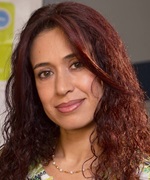5 Ways to Grow Cultural Competence: Working with the Eating Habits and Customs of Different Cultures
Sep 15, 2022, 10:20 AM
By: Sandra Arevalo, MPH, RDN, CDN, CLC, CDCES, FADA
Even though one in seven U.S. residents is foreign born, many of us overlook the vast diversity of people with diabetes and the cultural richness that this diversity provides. Just think for a second about how many foreign born friends, neighbors, colleagues or clients you know. People have the tendency to engage with others that share a similar culture, likes, hobbies, personalities, life style, etc. This tendency keeps us apart from others and limits our horizons.
When we travel abroad, the best way to learn about the foreign culture is by immersing ourselves in it, by eating their traditional foods, listening to their music and language, visiting their turistic places, learning about their history, talking to different people and so much more. But have you ever thought how learning about your client’s cultural background provides diabetes care and education specialists with the unique opportunity to travel -- without the expense of a trip? By asking questions about their culture, history and places to visit and hopefully tasting the traditional flavors of their cuisine, diabetes care and education specialists can harness the same learning opportunities afforded by travel.
Talking to your clients about their background, culture and culinary customs is your best way to learn critical details about their lives. Most people are very proud to share facts about their culture, even more when they find someone is authentically curious and has an open mind. The information is invaluable to your working relationship because you learn about the person’s beliefs, traditions, values, habits and lifestyle. Connecting with local people is the best way to learn about a new culture, so the client is your best guide to learn about their culture and how to support their diabetes management in a culturally competent manner.
I have five recommendations for any diabetes care and education specialists who are looking to increase cultural competence in easy, fun and interactive ways:
- Socialize
Get out of your comfort zone, talk to people and open your heart to those who are different. This is something I recommend doing outside of your practice. Visit foreign markets, restaurants, celebrations and parties. Socializing with people from other cultures is a lot cheaper than traveling, and offers, if not the same, more cultural richness.
- Relate
Be open minded. When talking to people with diabetes from other countries or cultures we might hear things that we find strange, but remember that you also do things that others might find strange. Relate to those things and never judge.
- Use your senses
Try ethnic foods, try cooking ethnic recipes, frequent ethnic restaurants and shops, dare to touch, smell and taste new foods. Never say no. Remember if other people enjoy it there might be something good in it. Try and then decide if you agree with the food or not, but try it first. This experience might help you understand why it is so difficult for a client to give up a food that isn’t in line with their management goals, or help you recommend flavorful alternatives that are aligned with their goals.
- Research
Develop your arsenal of knowledge by learning about history that relates to traditions and food; geography to learn what grows in the country; and traditional cooking techniques, ingredients (names and uses), drinks, home remedies and spices. Ask about holidays and religious observances, and if there are any specific foods used on these dates. Aside from being an interesting exercise, you’ll learn to suggest alternatives they may already have experience with.
- Accept
Accept that we are all different, celebrate the similarities and find value in the differences. Empathize with and learn from your client. Don’t wait to understand, just accept.
Diabetes care and education specialists don’t need to travel to learn about new cultures and cuisines. People, especially our own clients, can provide us with unique opportunities to learn about their own way of living, and how we can best support their diabetes management in a way that works for them. We just need to be willing to learn and accept, even more with respect to food. If you’re ready to take the leap, you can start with Colombia’s global table.
 About the Author
About the Author
Sandra Arevalo, MPH, RDN, CDN, CLC, CDCES, FADA
Sandra works as Director of community and patient education at Montefiore Nyack Hospital in New York. Her work in nutrition, obesity and diabetes for the underserved has received numerous awards and presented at national conferences, published in peer reviewed journals, and featured in national and international television. Sandra is a recognized speaker and expert in food and culture.
She has dedicated her time to train people working with food understand the cultural factors that lead to food choices. She is the author of Microwave Chef, a book inspired by people living in shelters in New York City. Currently, she is a spokesperson for the Academy of Nutrition and Dietetics, and the Association of Diabetes Care and Education Specialists.